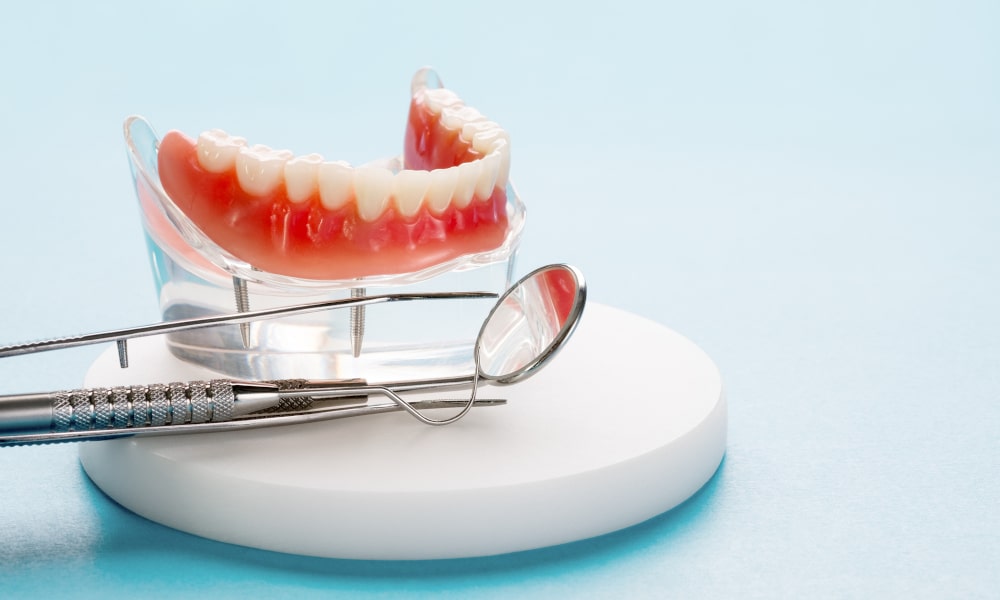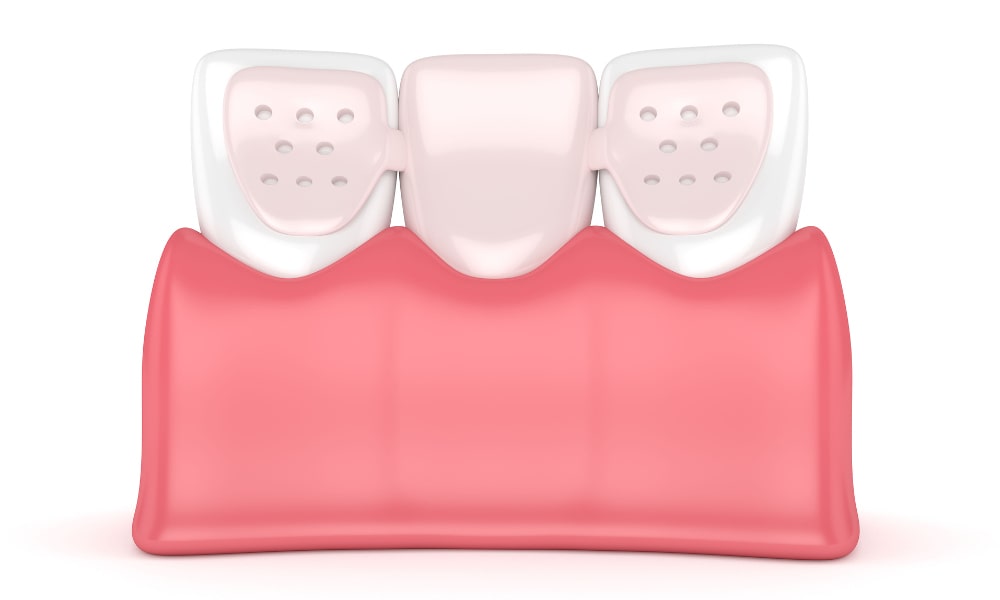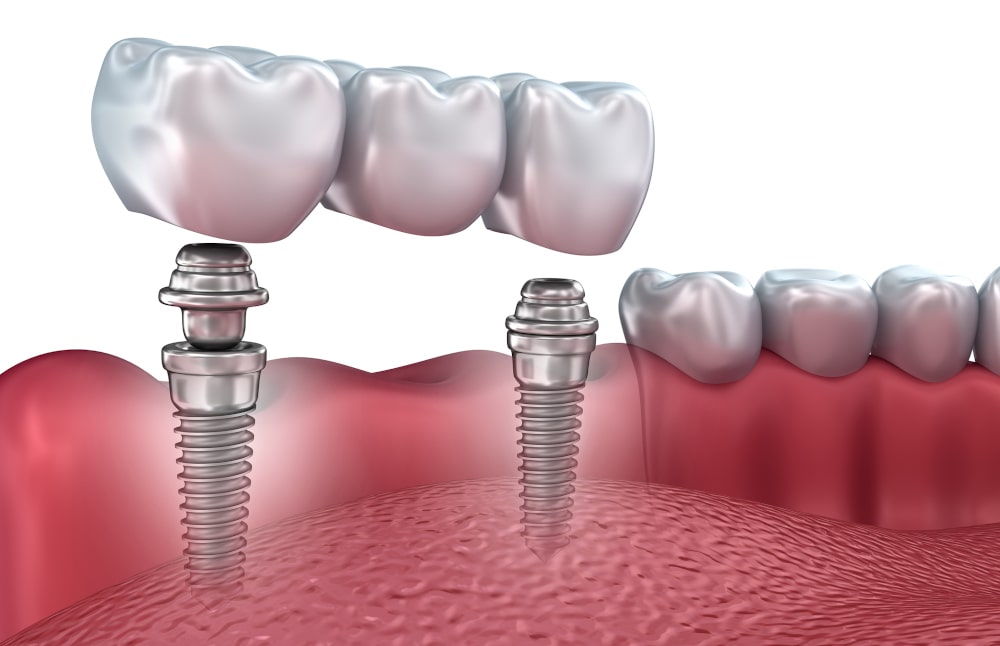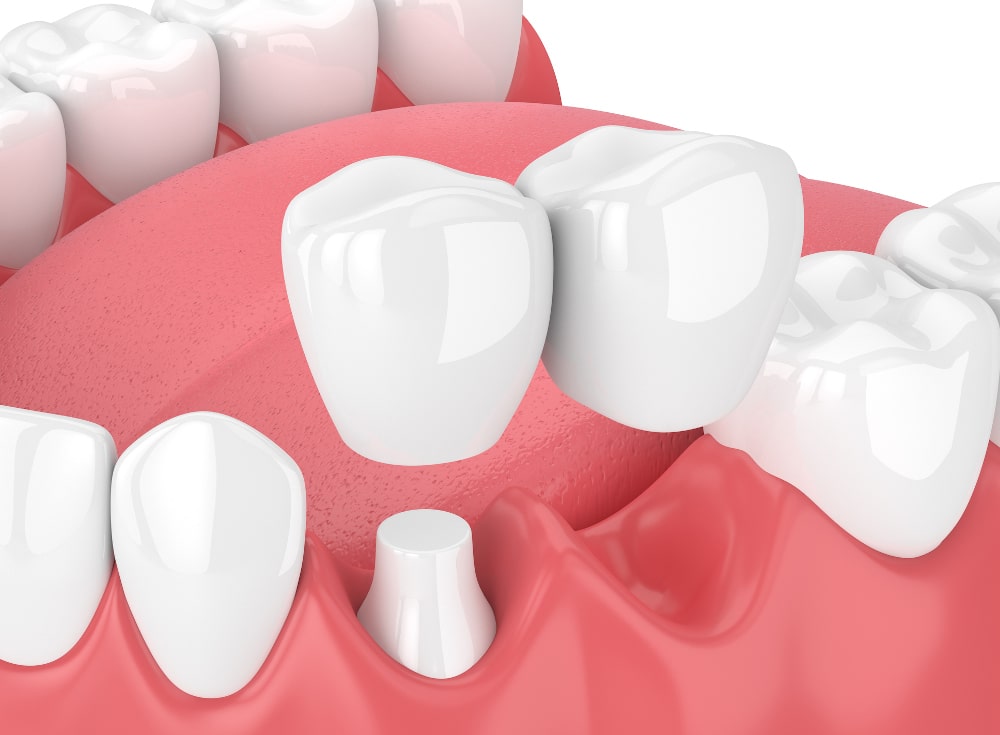
4 Types of Dental Bridges - Dental Clinic Markham
Key Takeaways
- There are four main types of dental bridges: Traditional, Maryland, Implant-Supported, and Cantilever.
- Each option has specific pros and cons, depending on your oral health, the number of missing teeth, and your budget.
- Modern materials, such as zirconia and porcelain, provide bridges that are both strong and natural-looking.
- Proper care and regular dental check-ups can extend the life of your bridge well beyond 10 years.
- Consultation with a dentist ensures you choose the bridge best suited to your long-term needs.
When you lose one or more teeth, a dental bridge can restore your smile, improve chewing function, and prevent neighbouring teeth from shifting. At our dental clinic in Markham, we offer a variety of bridges tailored to meet the unique needs of our patients.
What Is a Dental Bridge?
A dental bridge is a fixed restorative solution used to replace one or more missing teeth. Unlike removable dentures, a bridge is cemented in place and supported either by the natural teeth adjacent to the gap (called abutment teeth) or by dental implants. The replacement tooth or teeth — known as pontics — are attached to this structure, effectively “bridging” the space.
Dental bridges serve both functional and aesthetic purposes. They restore the ability to chew correctly, improve speech clarity, and maintain the natural contour of the face. Just as importantly, they prevent neighbouring teeth from drifting into the space, which can otherwise lead to bite misalignment, jaw strain, and even gum problems.
How Dental Bridges Work
- Support Structure: Bridges rely on either natural teeth (covered with dental crowns) or implants as anchors.
- Replacement Teeth: Artificial teeth (pontics) are custom-made to match the shape and colour of surrounding teeth.
- Fixed Placement: Once cemented, the bridge functions just like natural teeth — without the need for daily removal.
When Are Dental Bridges Recommended?
- If one or more teeth are missing in a row.
- When dental implants are not a suitable option due to bone loss or health conditions.
- To maintain oral function and facial aesthetics after tooth loss.
“A well-designed dental bridge does more than improve appearance. It maintains bite balance, prevents shifting, and protects the integrity of the entire smile,” explains Dr. Rob Eisen, DDS.
The 4 Main Types of Dental Bridges
1. Traditional Dental Bridge

How It Works
The traditional bridge is the most commonly used type of bridge. It requires healthy, natural teeth on both sides of the gap. These adjacent teeth are filed down to support dental crowns, which anchor the artificial tooth (pontic) in place.
Pros
- Strong and durable, with high success rates.
- Looks natural when colour-matched to surrounding teeth.
- Usually, they are more affordable than implants.
Cons
- Requires the removal of healthy enamel from neighbouring teeth.
- Future replacements always require crowns on those anchor teeth.
- It may not be suitable for patients with weakened or compromised teeth.
2. Maryland (Resin-Bonded) Bridge

How It Works
Instead of filing down adjacent teeth, this bridge uses a metal or porcelain framework bonded to the back of the neighbouring teeth. It is a more conservative alternative, preserving natural enamel.
Pros
- Minimal alteration to adjacent teeth.
- Faster, less invasive procedure.
- Good option for front teeth replacement.
Cons
- Less durable than traditional bridges.
- Adhesive may weaken over time, leading to instability.
- Not suitable for areas with heavy biting pressure (like molars).
“Maryland bridges are conservative, but they’re not as strong. They work best for replacing front teeth where chewing force is lighter,” says Dr. Guorgui.
3. Implant-Supported Bridge

How It Works
The cantilever bridge is similar to the traditional version but requires support from only one adjacent tooth instead of two. It’s used when there is only one natural tooth available for anchoring.
Pros
- Requires fewer anchor teeth than traditional bridges.
- It can be a good solution for single-tooth replacement.
- Less invasive than implant placement.
Cons
- Increased risk of complications due to uneven bite pressure.
- May cause damage or strain to the supporting tooth.
- Generally not recommended for back teeth.
4. Cantilever Bridge

How It Works
Instead of relying on adjacent teeth, this type uses dental implants surgically placed into the jawbone. These implants act as roots, providing a stable base for the bridge.
Pros
- Strongest and most durable bridge option.
- Preserves bone structure by stimulating the jaw.
- No need to alter healthy teeth.
- It can effectively replace multiple missing teeth.
Cons
- Requires surgery and a longer healing time.
- Higher upfront cost compared to other bridges.
- Not suitable for patients with insufficient bone density (unless grafting is performed).
Which Bridge Is Best for You?
| Type | Best For | Durability | Invasiveness | Cost Range | Key Limitation |
|---|---|---|---|---|---|
| Traditional | Patients with healthy adjacent teeth | High | Moderate (teeth filed) | Moderate | Loss of enamel on anchor teeth |
| Maryland | Front teeth replacement | Moderate | Low (no enamel removal) | Lower | Less stable, weaker bond |
| Cantilever | Missing a single tooth with one adjacent tooth | Moderate | Moderate | Moderate | Stress on one supporting tooth |
| Implant-Supported | Multiple missing teeth or wider gaps | Very High | High (surgery required) | Higher | Cost and healing time |
Advances in Dental Bridge Technology
Modern dental bridges are stronger, more precise, and more natural-looking thanks to recent technological advances:
- Digital scanning & CAD/CAM technology: Ensure a perfect fit and reduce the need for adjustments.
- Zirconia and porcelain materials: Provide durability while mimicking the natural appearance of teeth.
- Implant innovations, including guided surgery and immediate loading, make implant-supported bridges faster and more accurate.
- Improved bonding agents: Enhance the strength and longevity of minimally invasive Maryland bridges.
Caring for Your Dental Bridge
With proper care, most dental bridges last 7–15 years. Implant-supported bridges may last even longer.
Tips for bridge care
- Brush twice daily and floss under the bridge using a floss threader or water flosser.
- Visit your dentist for professional cleanings at least twice a year to maintain optimal oral health.
- Avoid chewing overly complex or sticky foods on your bridge.
- Report any looseness, discomfort, or gum irritation promptly.
Conclusion
Dental bridges remain a trusted solution for replacing missing teeth. Whether you choose a traditional, Maryland, implant-supported, or cantilever bridge, the right choice depends on your oral health, lifestyle, and budget.
Discuss your options with a qualified dentist to ensure you select a solution that restores your smile and provides years of reliable function.
Frequently Asked Questions
What is a dental bridge, and how does it work?
A dental bridge is a fixed dental restoration used to replace one or more missing teeth. It “bridges” the gap using artificial teeth (pontics) supported by natural teeth or dental implants. Bridges restore chewing function, improve speech, and maintain facial structure.
How long do dental bridges last?
With proper care and regular dental visits, most dental bridges last 7–15 years. Implant-supported bridges can last even longer due to their stability and support from the jawbone.
What are the main types of dental bridges?
The four main types are:
- Traditional Bridge – anchored by crowns on adjacent teeth.
- Maryland (Resin-Bonded) Bridge – bonded to the back of neighbouring teeth.
- Cantilever Bridge – supported by a single adjacent tooth.
- Implant-Supported Bridge – anchored by dental implants rather than natural teeth.
How do I know which bridge is right for me?
The best option depends on your oral health, the number of missing teeth, the availability of bone, and your lifestyle. A qualified dentist will evaluate your situation and recommend the most suitable solution.
Does getting a dental bridge hurt?
Most bridge procedures are performed under local anesthesia, resulting in minimal discomfort during treatment. Some temporary sensitivity may occur after placement, but it usually resolves within a few days.
How do I care for my dental bridge?
Brush twice daily and floss under the bridge using a floss threader or water flosser. Avoid hard or sticky foods, and visit your dentist regularly for professional cleanings to maintain the health of the bridge and surrounding teeth.
Can a dental bridge improve my appearance?
Modern dental bridges are custom-made to match the shape, size, and colour of your natural teeth, providing a natural-looking smile while restoring full function.

See what our patients are saying:
Everyone here is very friendly and provides excellent care. I received a full exam on my first visit, and everyone took time to answer my questions and ensured I felt comfortable the entire time - exactly what you want when visiting the dentist. I highly recommend Markham Smile Centre for anyone looking for great dental care.
There is an ample parking space before you get into the office. The receptionists welcome us friendly with proper COVID-19 procedures in place. The staff worked with patient very patiently and professionally. My teeth cleaning was done by Ying, she explained every detail to me and I did not feel any pain or uncomfortable at all. Thanks to the best team !
It's been a while since I've been to a dentist but I'm trying to get back on track with health in general. Overall it was great going to Markham Smile Centre! The receptionist (I believe she was Kim) was friendly. The hygienist, Ying, was attentive and gentle during the cleaning; x-ray tech (forgot her name, sorry!) was great too. Dr. Sara Riad explained things with good detail. Looking forward to going back!
I was someone who was nervous and anxious about visiting the dentist, but the team at Markham Smile Centre has made me feel SO comfortable. Kim is so patient and helpful and Dr. Hwang and Rory are both so professional and wonderful. They thoroughly explain the procedure to make you comfortable beforehand and are very gentle. I now look forward to visiting the dentist!
I found this place on a whim when I was looking for a new dentist in Markham. My hygienist ying was super nice and her cleaning was very gentle yet thorough. I saw Dr.Jason and he was very nice and informative in regards to what needs to be done and provided me with all the information I needed to make a choice. Would recommend this place to anyone looking for a new dentist, they’re accepting new patients!!
I have been to many dentists in my life, Dr. Jason is easily the best dentist I have ever been too. He does everything he can to make you comfortable no matter the procedure and is a true professional, as does all the staff at Markham Smile Centre. Truly an amazing dentistry
The clinic was clean and the staff was very polite. I particularly liked the fact that everything was explained to me before going in for the procedure so I knew what to expect at each step. The dental hygienist who did the cleaning for me was also very gentle and took my concerns into consideration. I will definitely recommend them.
Upon arriving to the Markham Smile Centre, my son and I were greeted with a warm welcome by the receptionists. The hygienists and Dentist were very gentle and transparent with what they were doing. The hygienist that worked on my 9 year old son was patient and very friendly with him, which helped ease his nerves. Our overall experience was A+.
Since I was little, I have always hated going to the dentist... Its always uncomfortable and unpleasant. These days, visiting the dentist isn’t so bad! Dr Jason, Rory, and the lovely staff at reception make the experience 100x better. I have had absolutely no issues with the gum graft and cleanings that I’ve gotten done here. Everyone is incredibly friendly and helpful, even when I’m calling in or emailing a hundred questions :). I would highly recommend Markham Smile Centre.
Love this place! All the staffs are friendly and Professional and I mean all, cause I've been to most of their office, Markham , Stouffville, North York, and Maple. Dr. Ko is very professional and patient. Whenever I have questions and concerns he would always reply me . I would say this this dental office take care of you all the way. I would highly recommend everyone to come here for any dental works. =)
